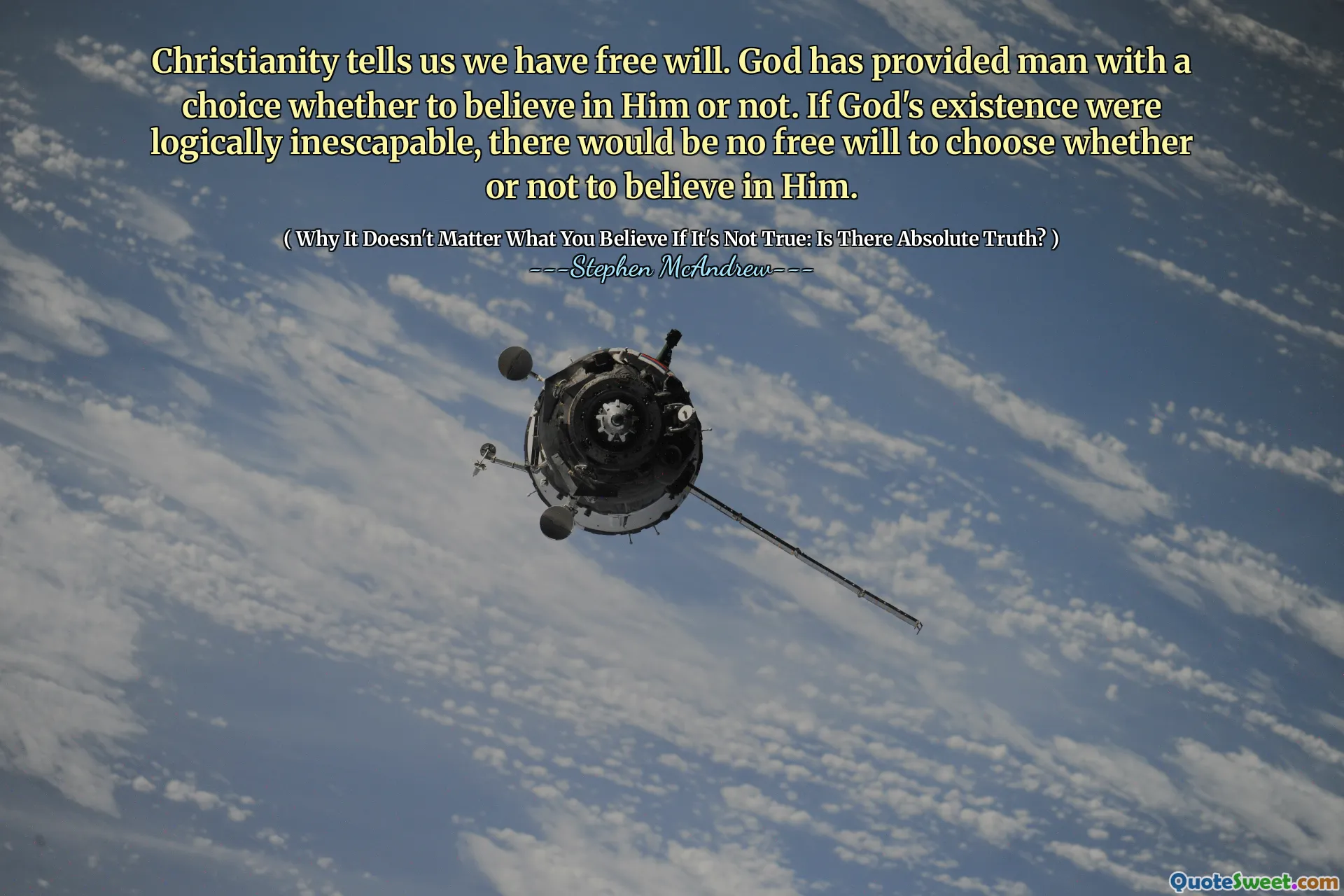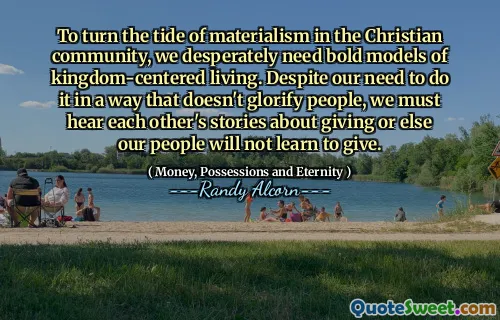
Christianity tells us we have free will. God has provided man with a choice whether to believe in Him or not. If God's existence were logically inescapable, there would be no free will to choose whether or not to believe in Him.
This quote delves into a profound theological and philosophical discourse about the nature of free will in the context of Christianity. It highlights a core belief that human beings are endowed with the ability to choose, specifically in the realm of faith—whether to embrace belief in God or reject it. The assertion hinges on the idea that free will is genuine only if there is an actual choice to be made; in other words, if God's existence was absolutely undeniable or logically inescapable, then belief wouldn’t be a choice but a necessity.
This perspective raises several intriguing questions. Firstly, it challenges deterministic views where everything might be preordained, suggesting that the divine intentionally set up a framework where humans must engage their will to participate in faith. Secondly, it hints at the value and significance Christianity places on free will as essential for moral responsibility and authentic devotion.
What is compelling here is the interplay between knowledge, belief, and freedom. If something is undeniably true, can we say individuals have freely chosen to believe it, or are they simply acknowledging an unavoidable fact? This quote invites us to consider the nuance of belief as an act of will influenced by faith rather than sheer logical proof. It subtly argues for the meaningfulness of faith and choice within Christianity, suggesting that for belief to be genuine, it must come with the freedom to doubt or reject.
In a broader sense, the quote also connects with ongoing debates about truth, evidence, and the human condition—touching on the existential dynamics that define the spirituality of decision and the dignity of human freedom.




